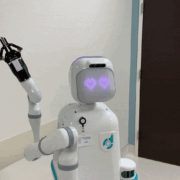Andy Dunn, “the entrepreneur who put pants online, and made them into the first brand – Bonobos – to be built purely online,” has written a book about his double life:
one that everyone knew about, the other only he, and very close family members, knew about.
How many times have you thought, said or felt like you’re ‘losing your mind’ while juggling the million things that need your attention for your startup, company or passion project? You may not use that phrase lightly after reading Dunn’s memoir (or perhaps, even after reading about it here).
Burn Rate: Launching a Startup and Losing My Mind is Dunn coming to terms, first in private, and then through public disclosure, with his bipolar disorder.
The Publishers Weekly review, succinctly describes the situation: “Dunn, while living a publicly successful life and leading a booming company, suffered for many years from paranoia, mania, depression, and the occasional belief that he was the Messiah sent to save humankind,”.
More frightening, or remarkable – depending how you view his nerve – even after being diagnosed with the illness, he went untreated, and without medicine, for 16 years. During the same period, Dunn’s startup Bonobos received a $100 million funding, which he later successfully sold for $310 million.
Dunn touches upon the stigma mental illness bears on entrepreneurs in the Wall Street Journal, “Would we have been able to raise that money if I’d been on the record as having Bipolar 1? Would people have wanted to work for me?”
In early 2016, before Bonobos was sold, Dunn went in a manic spiral, struck his wife and kicked her mother. He was hospitalized for a week, and later, jailed, and charged with misdemeanor assault.
“I had a scary moment. It was time for Walmart to do background checks on me and everyone in the executive team, and I said, ‘Look, you may find this record of an arrest. Here’s what the issue is: I have been living for 16 years with Bipolar 1, I was in denial of it, I was unmedicated and untreated. Then I had this second manic episode last year, and I was violent when I was manic,” Mr. Dunn shares in the Wall Street journal interview.
But why Andy Dunn is a curiosity among America’s young, enterprise community is a strange link: instances of bipolar disorder are more common among entrepreneurs than among the general population. A 2019 study shows that many of the personality traits found in entrepreneurs such as creativity, open-mindedness, extroversion, and risk propensity are also the traits of people with bipolar spectrum conditions, such as ADHD, depression, and substance abuse.
“Let’s not celebrate ‘crazy,’ and let’s not stigmatize it, either. Let’s, for everyone’s sake, stop pretending that it’s not here,” Dunn writes in the book.
For some entrepreneurs, these more recent open discussions around mental illness may be life saving. For others, it is too late.
This CNN story documents the lives and untimely deaths of Zarko Draganic and Eric Salvatierra, who lost their lives battling mental illness. Salvatierra was the former CEO of Skype, VP at PayPal, and an executive at eBay. His wife Meredith Ackley tells CNN, “He was one of those people who could go all the way up and go all the way down into the details.”
In this loving and personal write-up, a childhood friend of Draganic, pays homage to a “wunderkind”, documenting happy memories at a computer summer camp. Draganic moved from Canada to the Bay Area, starting a company in 1995 that was acquired by Broadcom in 2002.
As acceptance of depression, anxiety or other forms of mental illness among entrepreneurs slowly gains acceptance, tech workers in the Bay Area have also been talking more openly about these issues. And how is this development unfurling in the SF Bay Area? Rather predictably.
The Bay Area sees opportunity. “Silicon Valley is approaching its anxiety the way it knows best. So now there is on-demand therapy. Therapy metrics. Therapy R.O.I. Matching therapists with clients using the tools of online dating,” says the New York Times.
(But do keep in mind this ‘development’ was pre-pandemic and pre-recession – and we have more recent statistics toward the end).
Speaking to the New York Times in the same article, Alex Katz, founder of Two Chairs, a therapist-matching start-up has said, “What we’re out to build is a new mental health system.” The company raised $7 million in Series A and 21 million in Series B.
The American Psychological Association in its more recent January 2022 report, quoting Rock Health, says private investors had already poured $3.1 billion into mental health ventures by the third quarter of 2021 alone.
“In the Bay Area, founders see little virtue in applying a measured response to a market opportunity,” says the New York Times.
And succinctly sums up how Bay Area would typically view these developments: The cure for tech’s ills is more tech.













